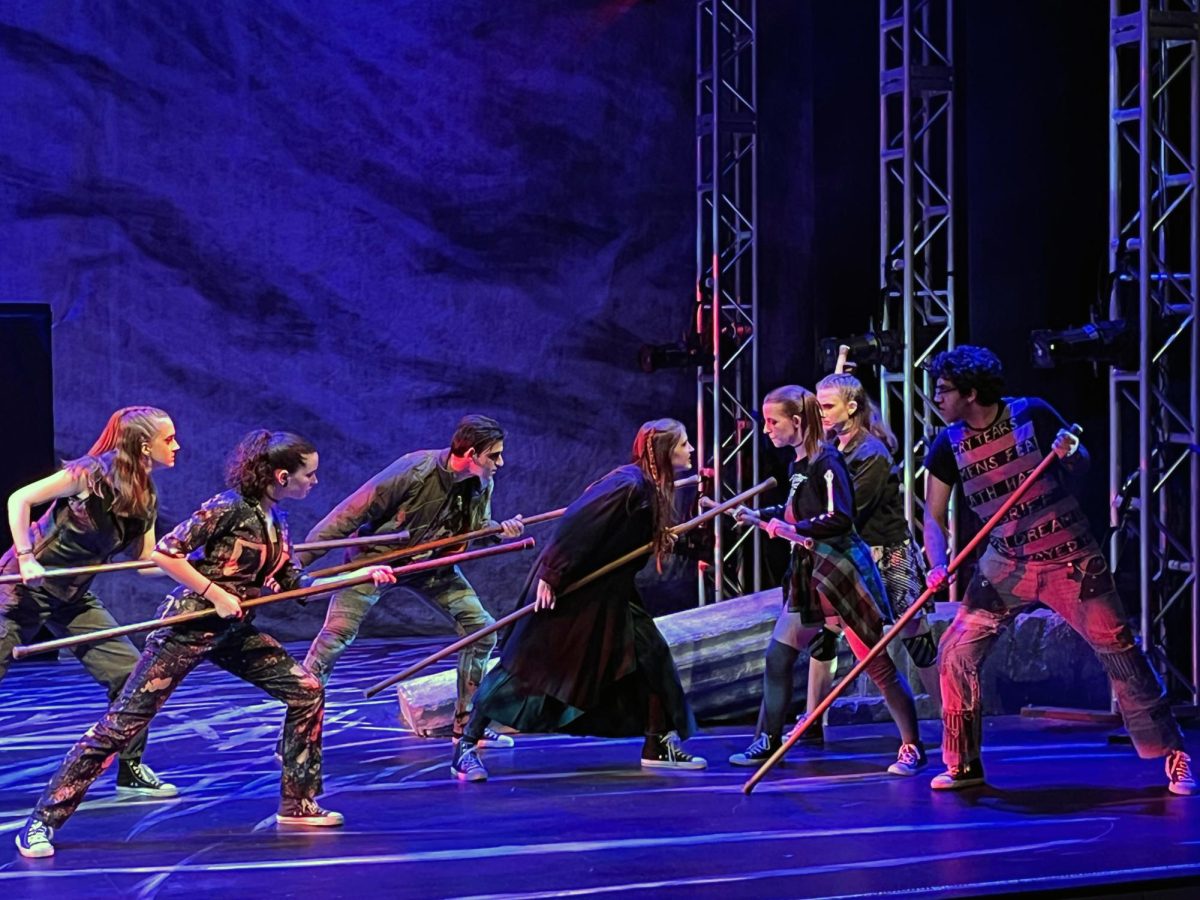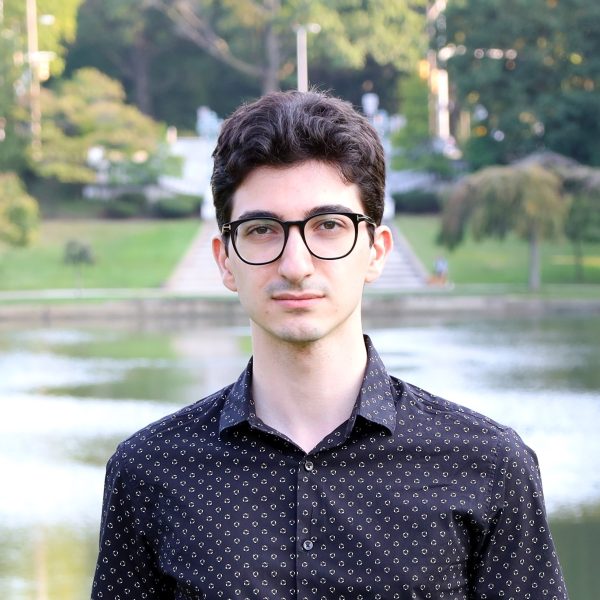The Department of Theater at Case Western Reserve University is staging a quintessential ancient Greek tragedy with modern elements. “Electra” by Sophocles is a tale of sacrifice, adultery, grief and revenge. Professor Christopher Bohan from CWRU’s Department of Theater directs this production with Anne Carson’s translation. There have been shows on Nov. 10, 11 and 12, with three more scheduled for Nov. 17, 18 and 19 for those still eager to witness the tragedy of the House of Atreus.
Sophocles was an ancient Athenian playwright who wrote tragedies, of which seven have survived in full. He was the most celebrated playwright in his home city, and alongside “Electra” he wrote other plays that are still beloved and widely-taught, including “Antigone” and “Oedipus Rex.” Sophocles is one of three ancient Greek tragedians with full plays that have survived to the present day, the other two being Aeschylus and Euripides. Each of them wrote a play about the story of Electra that is extant, and each version features a different telling of the story with the same core characters. Director Bohan said that he chose Sophocles’ version because he fell in love with Carson’s “vibrant and nuanced” translation, as she “created dynamic, compound words to retain a sense of poetry, while modernizing the ancient text.”
To fully understand “Electra,” it helps to have a cursory understanding of the Trojan War and the House of Atreus. Agamemnon, the mythical king of Mycenae and member of the House of Atreus, could not get favorable winds from Artemis to sail the Greek fleet to Troy because he had killed a deer belonging to her sacred grove. A seer revealed to Agamemnon that he had to sacrifice Iphigenia, one of his own daughters, in order for Artemis to allow him to sail, which he eventually did—after only some hesitation. This angered his wife Clytemnestra, and when Agamemnon returned home after the decade-long Trojan War, his adulterous wife and her lover Aegisthus, Agamemnon’s cousin, murdered the king in his palace and usurped the Mycenaean throne. Shortly after, Agamemnon’s daughter Electra sent away her brother Orestes to the region of Phocis to protect him from his mother, hoping that he would one day return and kill Clytemnestra and Aegisthus. This is when Sophocles’ play begins.
Set at Mycenae before the palace of Agamemnon, “Electra” follows the children of Agamemnon as they seek to avenge his murder. Orestes (Mary Coulter) appears first with his Phocian friend Pylades (Jack Exline) and the Old Man (Macy Dickerson). After Orestes recounts the prophecy from Apollo’s oracle and resolves to kill his mother and her lover, the three characters leave. Electra (Emily Kuntz) then appears on the stage, unaware if her brother is alive or not. She laments her tragic circumstances to the six-person Chorus, longing for her brother’s return and the death of their mother. Electra later encounters her sister Chrysothemis (Madeline Golya) who seeks to appease her mother in order to survive; such opportunism clashes with Electra’s desire for revenge. Clytemnestra (I’Maya Gibbs) later comes out and argues with Electra, sharing her side of the story and saying that her justification for killing Agamemnon was the sacrifice of Iphigenia. Orestes eventually makes his return, but not before causing Electra much grief. Near the play’s end, a haughty Aegisthus (Sam Michalski) takes the stage with a dramatic entrance, and the climax of the tragedy proceeds in a brilliant cinematic fashion.
While staying true to Sophocles’ text, this production of “Electra” included many elements that would not have been found in Ancient Greek theater. At several points in Director Bohan’s production, the characters on stage break out into dance, either out of extreme sadness or joy. In one captivating monologue, the Old Man picks up a microphone and recounts the stellar performance of Orestes at the games at Delphi as silhouettes of charioteers race in the background. Music accompanies many scenes, adding ambience, excitement or suspense. Director Bohan was inspired to add music to “Electra” after playing the role of a non-speaking servant in the play while in graduate school; in that production, he put his headphones in his ear and realized how well his music—specifically “Hyperballad” by Björk—fit the theme of the play. “The music and dance add a sense of celebration to the theme of revenge. When we think of getting revenge, we tend to think of how amazing it would be to enact that revenge, how exciting it would be to confront a person who has wronged us … and watch them squirm,” he said. “And so, I wanted to use the music, dance and movement to propel the action of the play toward the climax, to give the audience that sense of joy of seeing revenge enacted! Most of us turn the other cheek because we are good people, but Sophocles wants us to live vicariously through Electra … and celebrate … her victory.”
In Greek tragedy, there are few villains who simply love evil for its own sake; instead, the major characters possess virtues and vices alike, and have understandable reasons for acting as they do. The essence of the tragedy occurs when two characters with reasonable but irreconcilable goals, motivations or values clash. In “Electra,” Electra and Orestes are justified in avenging the murder of their father, but Clytemnestra, on the other hand, who had to endure the sacrifice of her own daughter at the hands of Agamemnon, is also an understandable character even while overcome by misery and wrath. The audience is thus forced to grapple with difficult moral questions such as: Was the death of Iphigenia a good enough reason for Clytemnestra to kill Agamemnon? Was Chrysothemis wrong to try to appease her mother at first instead of undermining her? Is it ever right to kill one’s own mother? There are no easy answers to these complicated moral dilemmas. Director Bohan shared what he wants viewers to grapple with: “I want the audience to celebrate with Electra, to purge their desire for revenge, but then also to share in the aftermath of that decision with Electra. Revenge seems like it would be a cathartic experience, but what does it really get you?”




